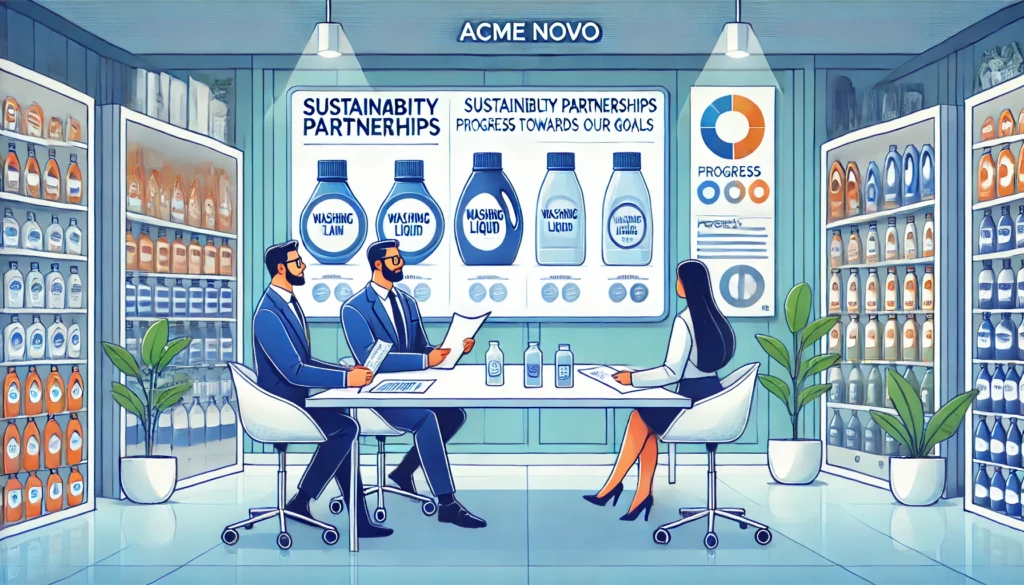Why Sustainable Procurement Matters for SMEs
Small and medium-sized enterprises (SMEs) face constant pressure: cut costs, reduce risks, and stay competitive. Sustainable procurement—buying goods and services in ways that minimise environmental and social impact—can help do all three.
What’s in it for your business?
- Lower costs by reducing waste and energy use.
- Boosted reputation with eco-conscious customers.
- Resilient supply chains that meet future regulations.
It’s more than a trend. In a world where customers care about values, sustainable procurement gives SMEs a real competitive edge.
Key Tools for Smarter, Sustainable Procurement
1. The Flexible Framework Tool: Benchmark Your Progress
This self-assessment tool helps SMEs measure how sustainable their procurement processes are—and where to improve.
- Assess environmental impact, supplier diversity, and economic performance.
- Set goals for reducing carbon footprints and boosting local sourcing.
- Gain a competitive edge by integrating sustainable practices that customers trust.
Pro Tip: Use data insights from the framework to back strategic decisions and track progress year-on-year.
2. Life Cycle Impact Mapping: See the Bigger Picture
Every purchase affects the planet—from raw material extraction to product disposal. Life cycle impact mapping shows where you can reduce waste, emissions, and costs.
Why it matters:
- Spot hidden costs in logistics, packaging, and energy.
- Choose better suppliers based on sustainability metrics.
- Improve product longevity and reduce returns.
Pro Tip: Target high-impact areas first—like transport emissions or unsustainable packaging.
3. The Prioritisation Tool: Focus Where It Counts
Not all procurement decisions have equal impact. This tool helps SMEs prioritise procurement areas based on sustainability benefits and risks.
- Identify high-impact suppliers that can help achieve sustainability goals.
- Optimise spend by focusing on categories that reduce long-term risks.
- Align procurement with growth plans by selecting ethical, scalable partners.
Pro Tip: Focus on quick wins (like renewable energy sourcing) while planning for long-term supplier engagement.
4. Developing Your Procurement Function: Build Sustainability Into the Team
Sustainable procurement isn’t a one-off project—it’s a mindset. SMEs need to build sustainability into daily decision-making.
How to do it:
- Train procurement teams to evaluate suppliers on ESG (Environmental, Social, and Governance) factors.
- Set KPIs that reward sustainable choices.
- Create supplier scorecards that factor in emissions, ethics, and diversity.
Pro Tip: Align procurement goals with company values—customers notice when businesses walk the talk.
5. Core Supplier and Value-Creation Initiatives: Work Smarter With Suppliers
Working closely with suppliers is crucial. By embedding sustainability into supplier relationships, SMEs can:
- Reduce carbon emissions by selecting low-footprint suppliers.
- Streamline logistics for cost savings and fewer emissions.
- Build long-term partnerships that strengthen supply chain resilience.
Pro Tip: Add sustainability requirements to supplier contracts to lock in long-term improvements.
6. Understanding Your Baseline: Start with the Facts
Before making changes, SMEs need to know where they stand. Assess your supply chain’s sustainability by:
- Conducting ESG teardowns of key suppliers.
- Benchmarking performance against industry standards.
- Mapping risks like high-carbon suppliers or unreliable sourcing.
Pro Tip: Start with your top 10 suppliers—small changes here can make a big impact.
7. Shifting the Organisation: Make Sustainability Central
For SMEs, a successful shift to sustainable procurement means:
- Setting clear targets for carbon reduction and supplier ethics.
- Using carbon accounting to track supply chain emissions.
- Embedding sustainability in procurement policies from day one.
Pro Tip: Use real-time dashboards to share progress with the entire organisation—transparency drives accountability.
Final Thoughts: Profit and Purpose Can Coexist
Sustainable procurement isn’t just a moral choice—it’s a smart business move.
- Lower costs through smarter sourcing.
- Stronger brand loyalty by aligning with customer values.
- Resilient supply chains that withstand regulatory changes.
For SMEs, sustainable procurement is the key to future-proofing operations. It’s about making decisions today that secure profits tomorrow.
Need help shifting to sustainable procurement? UK Business Advisors are here to help SMEs build greener, more profitable supply chains.

